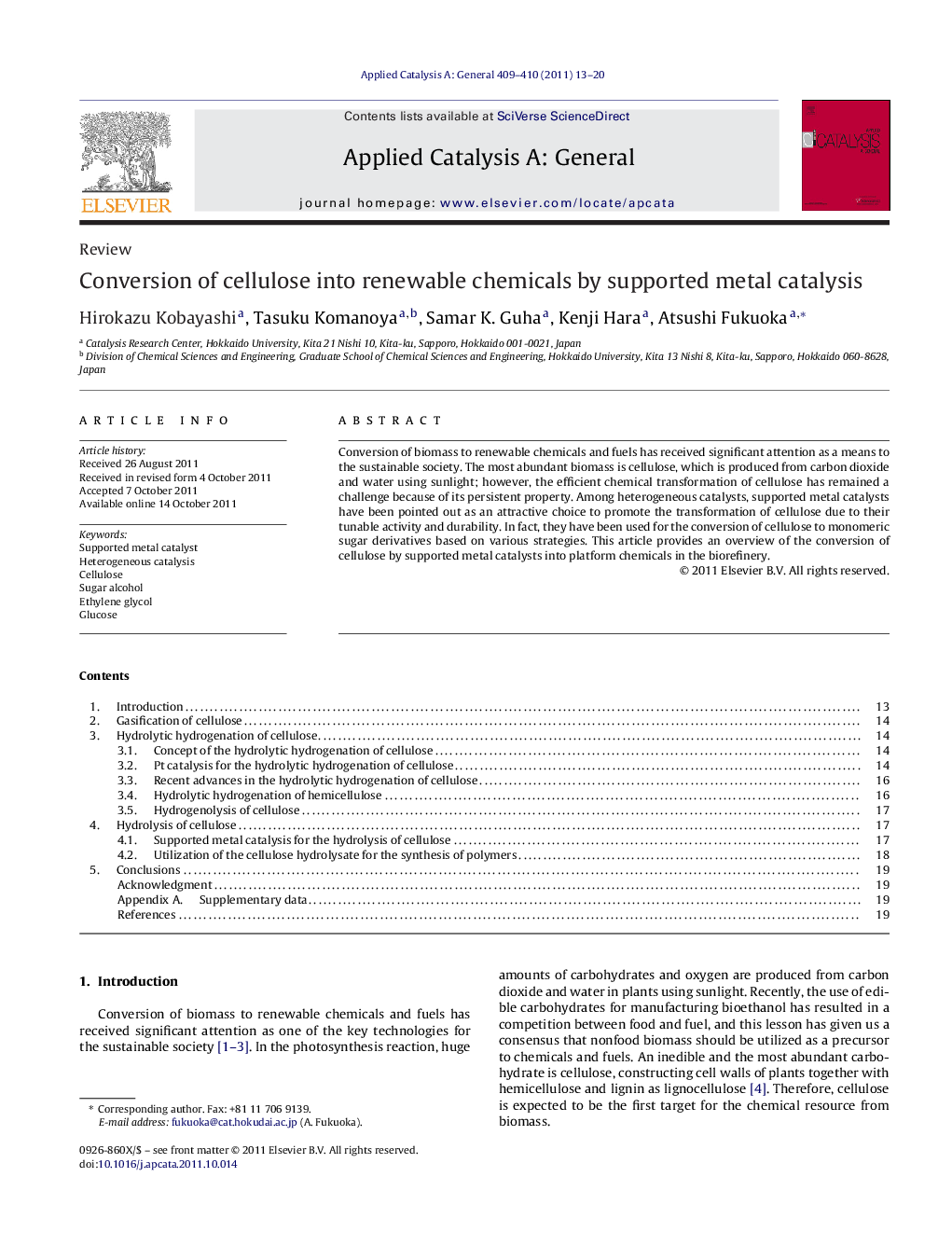| Article ID | Journal | Published Year | Pages | File Type |
|---|---|---|---|---|
| 41052 | Applied Catalysis A: General | 2011 | 8 Pages |
Conversion of biomass to renewable chemicals and fuels has received significant attention as a means to the sustainable society. The most abundant biomass is cellulose, which is produced from carbon dioxide and water using sunlight; however, the efficient chemical transformation of cellulose has remained a challenge because of its persistent property. Among heterogeneous catalysts, supported metal catalysts have been pointed out as an attractive choice to promote the transformation of cellulose due to their tunable activity and durability. In fact, they have been used for the conversion of cellulose to monomeric sugar derivatives based on various strategies. This article provides an overview of the conversion of cellulose by supported metal catalysts into platform chemicals in the biorefinery.
Graphical abstractFigure optionsDownload full-size imageDownload high-quality image (457 K)Download as PowerPoint slideHighlights► Supported metal catalysis for the conversion of cellulose. ► Synthesis of sorbitol under hydrolytic hydrogenation conditions. ► Hydrolytic activity of supported metal catalysts. ► Direct use of the cellulose hydrolysate for the production of chemicals.
